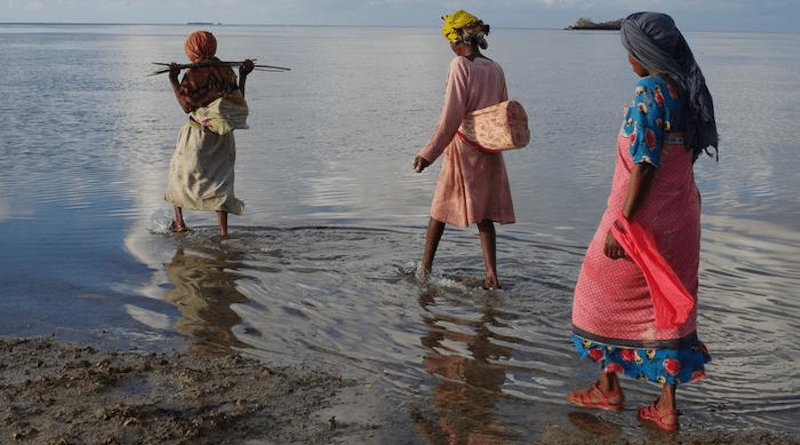Voices Of Indigenous Peoples And Local Communities An Important Part Of Climate Fight
Coinciding with the International Day of Indigenous Peoples, an ICTA-UAB study calls for indigenous peoples’ in-depth knowledge of climate change to be considered.
Indigenous Peoples and local communities around the world have a rich and extensive general knowledge of climate change impacts and possible ways to adapt. This knowledge should be recognised by both science and climate policy.
This is the main conclusion of an international study led by the Institute of Environmental Science and Technology of the Universitat Autònoma de Barcelona (ICTA-UAB) which has spent five years analysing and providing detailed data on how Indigenous Peoples and local communities perceive and respond to the impacts of climate change in their territories.
Led by Victoria Reyes-García, ICREA researcher at ICTA-UAB, the Local Indicators of Climate Change Impacts (LICCI) project, funded by the European Research Council (ERC), has analysed 52 case studies in indigenous and local communities around the world. The project has benefited from the invaluable collaboration of a network of researchers.
The findings show that Indigenous Peoples and local communities are disproportionately affected by climate change, as they often live in climate hotspots and depend on nature-based livelihoods. Societies often marginalised due to historical and ongoing inequalities, climate change is only one among several challenges they face within a wider context of environmental degradation.
The results show that these communities have a rich and nuanced knowledge of climate change impact adaptation methods. “Connected with their natural environment across generations, they have a holistic understanding of the cascading effects of climate change impacts, from changes in atmospheric, physical and biological systems to impacts on their livelihoods,” explains Victoria Reyes-García.
The case studies cover a range of topics, such as how weather instability makes farming increasingly difficult in Peru or Mexico and sea-ice hunting extremely risky in the Arctic regions, or how changing tides and temperatures on shallow reefs make it difficult to catch octopi in Wasini Island in Kenya. The research covers communities ranging from Koryak reindeer herders in Siberia, Russia, to those in northern Kenya or Puna Seca in Argentina, fishermen on the Juruá River in Brazil, Inuit in Nunavut, Canada, Quechua farmers in Peru, Mapuche-Pehuenche in southern Chile, and indigenous people in Fiji.
Results stress that the adaptive responses of indigenous peoples and local communities to the impacts of climate change are varied and can inspire effective adaptation pathways for other vulnerable communities. Yet, despite their valuable expertise, their knowledge is not taken into account enough in climate change reporting and policies, even in regions where data is scarce due to their difficult access or when the adaptation measures are applied in their territories.
Therefore, researchers claim that “as legitimate custodians of knowledge regarding climate change and its impacts on the local environment, Indigenous Peoples and local communities should have a more central role in the scientific and political processes of understanding and adapting to climate change” and call for institutions involved in assessing impacts and designing adaptation policies and plans at local, national, and international levels to incorporate them into decision-making.
They also call for special attention to be paid to the rights of Indigenous Peoples, including respect for their sovereignty as well as to the rights of other nature-dependent communities, ensuring that they genuinely participate in assessment, decision-making and redress mechanisms.

